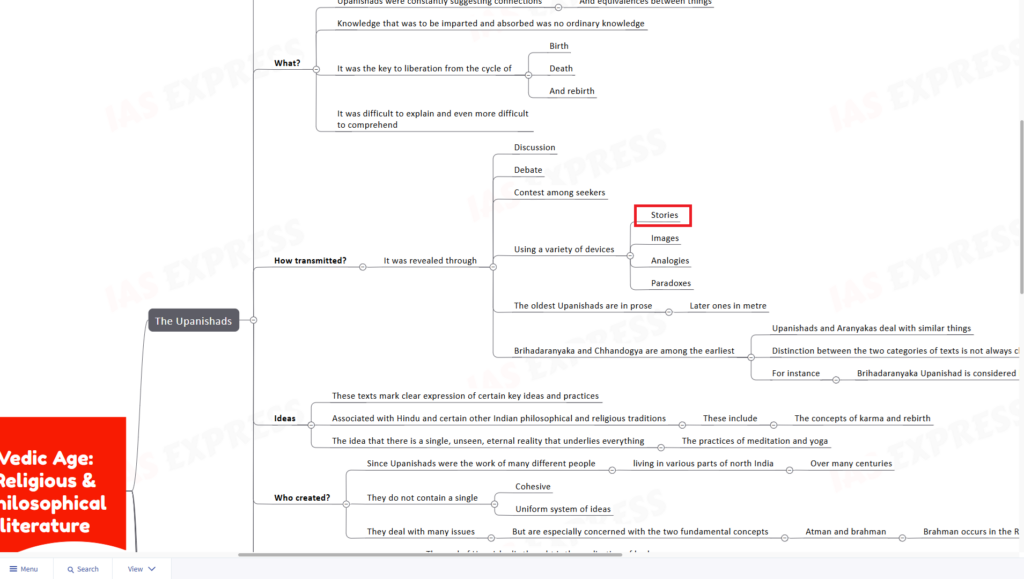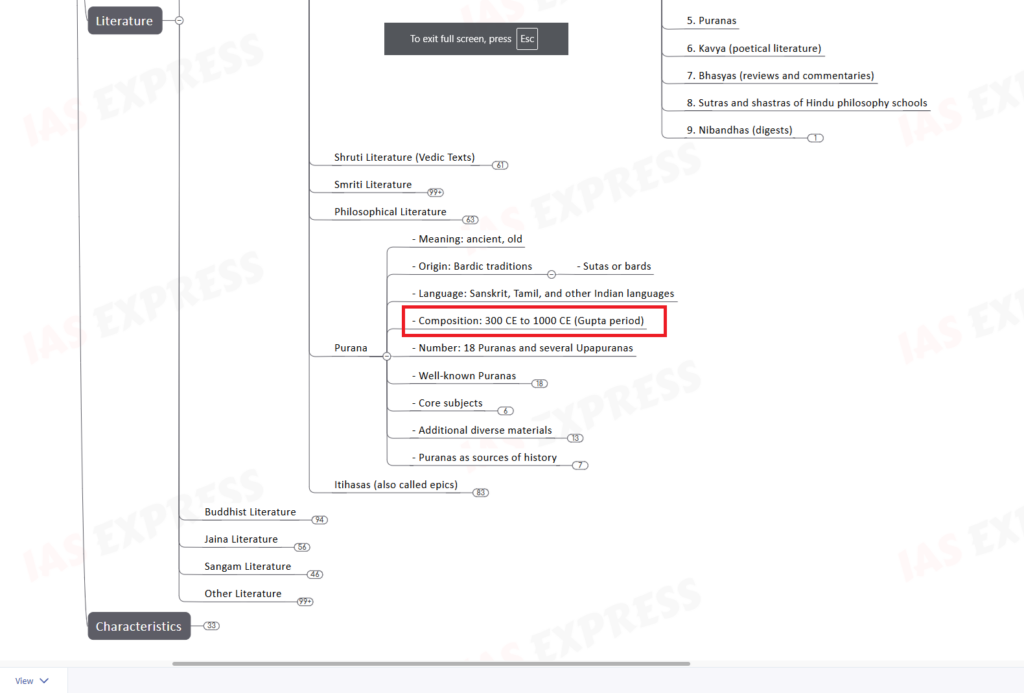Consider the following statements:
- There are no parables in Upanishads.
- Upanishads were composed earlier than the Puranas.
Which of the statements given above is/are correct?
(a) 1 only
(b) 2 only
(c) Both 1 and 2
(d) Neither 1 nor 2
Correct Answer: (b) 2 only
Explanation:
- Statement 1: There are no parables in Upanishads.
- Statement 2: Upanishads were composed earlier than the Puranas.
Learn more
- Upanishads:
- Definition: The Upanishads are ancient Hindu texts that form the philosophical basis of Hinduism, often referred to as Vedanta, meaning the end of the Vedas.
- Content: They explore concepts such as Brahman (the ultimate reality) and Atman (the individual soul), and their interconnectedness.
- Composition: The principal Upanishads were composed between 800 BCE and 500 BCE, with some later ones extending to the start of the Common Era.
- Influence: They have significantly influenced Hinduism and other Indian religions like Buddhism and Jainism, and have also impacted Western philosophical thought.
- Puranas:
- Definition: The Puranas are a genre of ancient Indian literature encompassing mythological stories, traditions, and legends, often with a focus on genealogies and cosmology.
- Content: They include narratives about the creation of the universe, genealogies of gods, heroes, and sages, and descriptions of Hindu cosmology and geography.
- Composition: The Puranas were composed over a long period, from the 3rd to the 10th century CE, with some texts undergoing significant redactions and interpolations over time.
- Significance: They serve as important texts for understanding the cultural and religious history of India and are considered encyclopedic in nature.
Reflection in IAS EXPRESS



